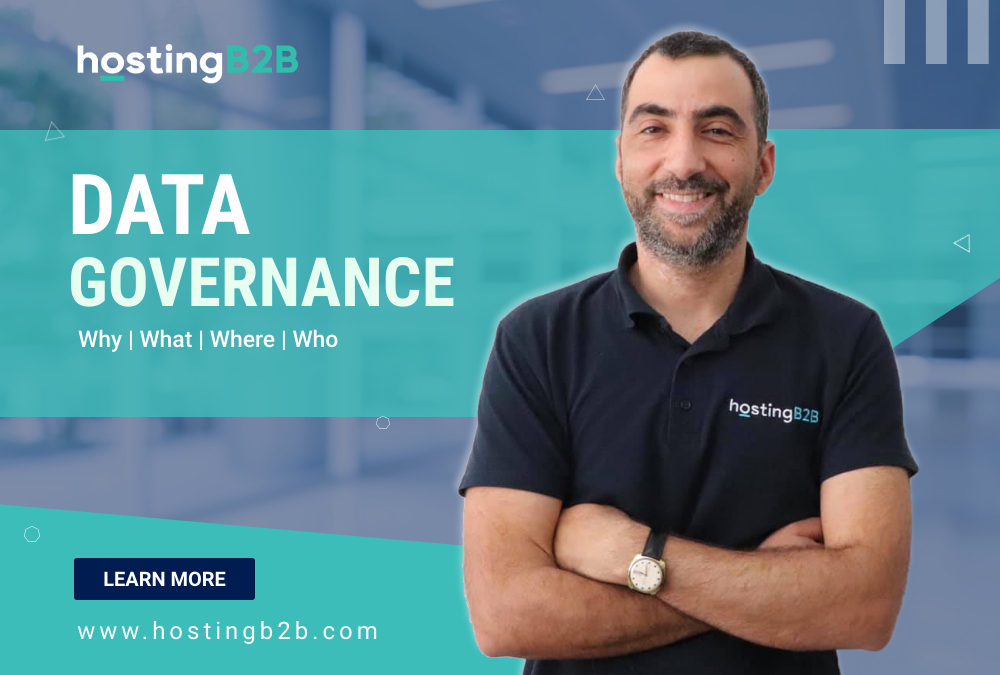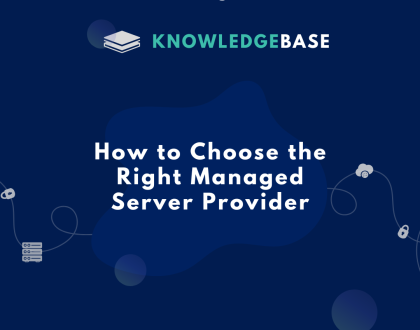Data Governance – Why – What – Where – Who?
by Maria S

My name is George Sarris and I have been involved in the IT SME Industry in Cyprus – Malta –UAE and Europe since the Floppy disk Era.
I have been constantly eager to learn the new trends and adapt to new technologies. I do this both within our clients enterprise networks or our own global hosting infrastructure.
The Covid-19 pandemic, expedited the digital transformation and there is no doubt about it. Companies now understand the urgency of adapting rather than staying as is to get it over with.
Digital Transformation, one may say “WOW” what’s that really catchy word?
What Digital Transformation is, is the adoption of digital technology by a company to improve business processes, value for customers and innovation.(Source Wikipedia).
I will emphasize on “Improving business processes” and i will expand more on this.
While in Semi or Partial Lockdown, Teleworking (Work from Home) and other business processes that were a defacto for many years, suddenly became a necessity for survival.
Force majeure? MAYBE!
What is Data Governance (DG)
Data governance refers to the procedures of internal data standards and policies. That also control data usage managing the security of data in SME Systems including but not limited to (availability, usability, integrity and security of the data) in enterprise systems
Why do we need Data Governance in companies?
Based on IMF (International Monetary Fund) Data is the new oil.
Now imagine when businesses are forced to open their within office access to global internet through VPN’s SSL’s or even Dedicated Networks.
Their DATA suddenly becomes available for hackers and I mean there is NOTHING that can’t be hacked. Literally.
The Data governance ensures data’s consistent trustworthiness and possible misuse.
Companies now face new stronger regulations regarding data privacy. They rely on Data analytics to optimize operations and create data driven business decisions. The overall component of the Data Governance is the strategy and the business outcome. Enterprises will implement this to focus on the Governance program rather than the data itself.
Why data governance matters
Good Data Governance ensures data consistency, in various systems across an organization overcoming data compatibility issues between departments.
That could complicate data integration efforts and create data integrity issues. They would affect the accuracy of business intelligence (BI), enterprise reporting and analytics applications. In addition, data errors might not be identified and fixed, which would further affect BI and analytics accuracy.
Bad Data Governance can complicate the Data Integration and create data integrity issues. Ultimately this would give false information to the BI Systems or Enterprise Reporting and analytics applications. IT can also get into many issues with regulatory compliance such as EU GDPR General Data Protection Rights or the CCPA (California Consumer Privacy Act).
Who's responsible for data governance?
EVERYONE IS RESPONSIBLE. So the best approach is to train them all (Executives – Data Management and IT).
Generally speaking there is the Data Governance manager and the Committee which approves and plans any policy decision.
Data Stewards also can step in to ensure that policies and rules are approved and implemented by their fellow workers.
Data Governance Components
Data governance software can be used to automate aspects of managing a governance program.
In combination with data quality, metadata management and master data management (MDM) tools. Supporting program and workflow management, collaboration, development of governance policies, process documentation, the creation of data catalogs and other functions.

How to implement?
The implementation consists of three main (3) phases.
Data Mapping & Classification
Drafting the Data road path (Data Mapping) helps you document data assets and how data flows through an organization. Classifications of Datasets based on Personal Information or other Sensitive Data. This Classifications will drive how data governance policies are applicable to individual data sets.
Business Glossary
Purposes of a business glossary is to contain the definitions of business terms and concepts. For example, what constitutes an active customer. By helping to establish a common vocabulary for business data.
Data Catalog
Data catalogs collect metadata from systems. They use it to create an indexed inventory of available data assets that includes information on data lineage, search functions and collaboration tools. Information about data governance policies and automated mechanisms for enforcing them can also be built into catalogs.
Other Key data Governance pillars
Other Data governance pillars are arising from the overall data management process.
We hereby list some of them and their importance.

- Data stewardship is an essential responsibility to be accountable for a portion of an organization’s data, with job duties in areas such as data quality, security and usage. Data stewards work together with data quality analysts, database administrators and other data management professionals
- Quality of Data improvement is one of the biggest driving forces for Data accuracy, completeness and consistency across systems. Without Data Quality there is no successful governance systems.
- Data cleansing, is a common data quality element for fixing data errors and inconsistencies and also correlates and removes duplicate instances of the same data elements.
- Master data management( MDM ) establish a master set of data on customers, products and other business entities to help ensure that the data is consistent in different systems across an organization. MDM is another data management discipline that’s closely associated with data governance processes.
Why Hostingb2b Solutions ? Contact us TODAY to find out!
George is well known for him extensive knowledge of complete aspect of the ICT Cycle, its processes and challenges.
Throughout the years he has led many companies in Cyprus – Malta – UAE to aid them into adapting to their new business transformation with policies, KPIs, Data Governance, Information Security and Cybersecurity.
Its BCP (Business Continuity Practitioner) and Holds a Diploma in Management Information Systems.
He is fully aware and compliant with ISO27001 and ISO27701 and ISO22301 policies as well as GDPR and PCI-DSS procedures and policies.
Additionally, he is the Director of IGMS LTD and HostingB2B, a Cyprus based ICT company focusing on Enterprise and Global enterprise Networks, with Hosting Solutions and Systems. Network integrations as well as SIP telephony and PBX deployment.
Recommended Posts

HostingB2B Easter Eggs-clusive SALE 30% OFF VPS
March 27, 2024

How to Choose the Right Managed Server Provider
March 1, 2024



